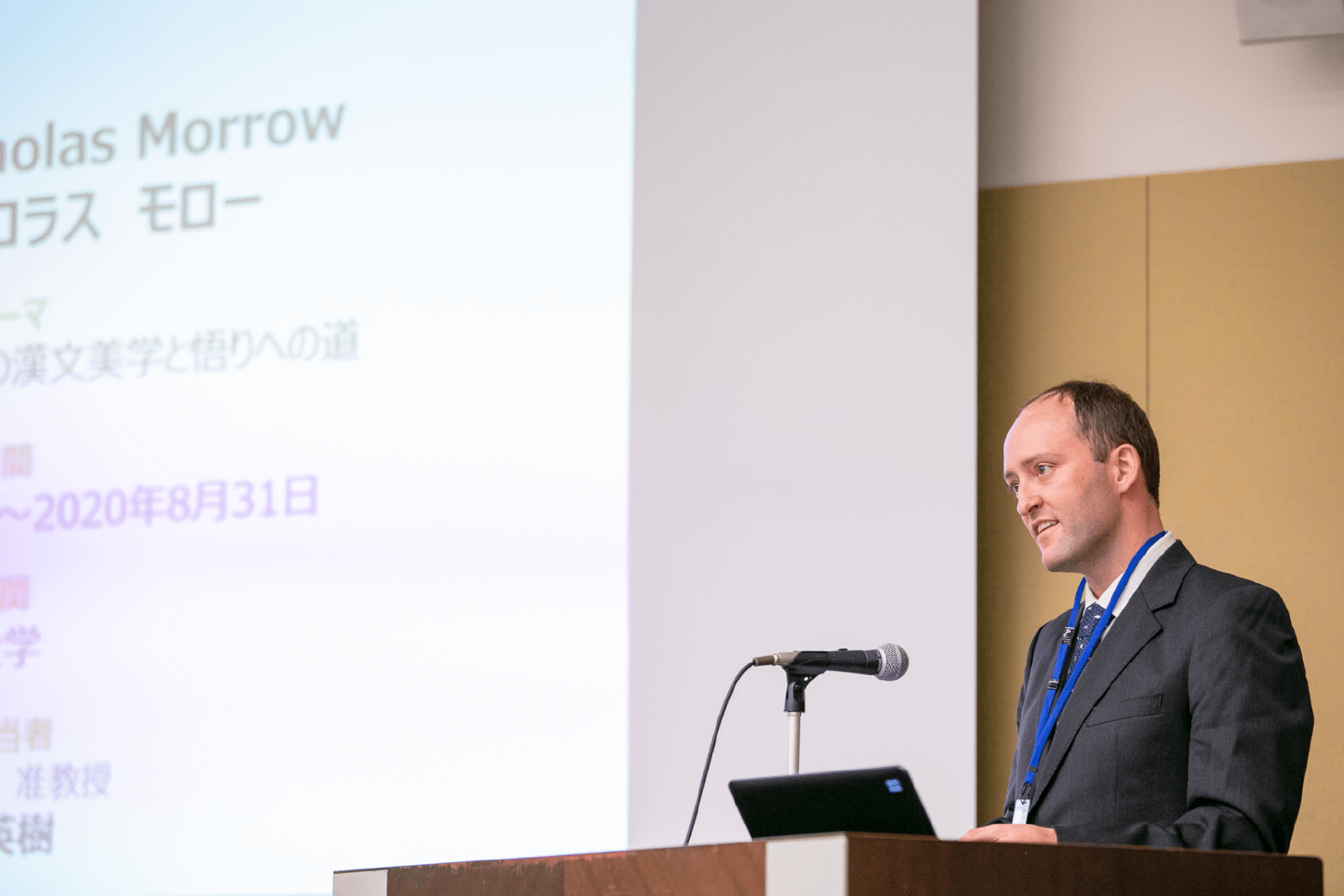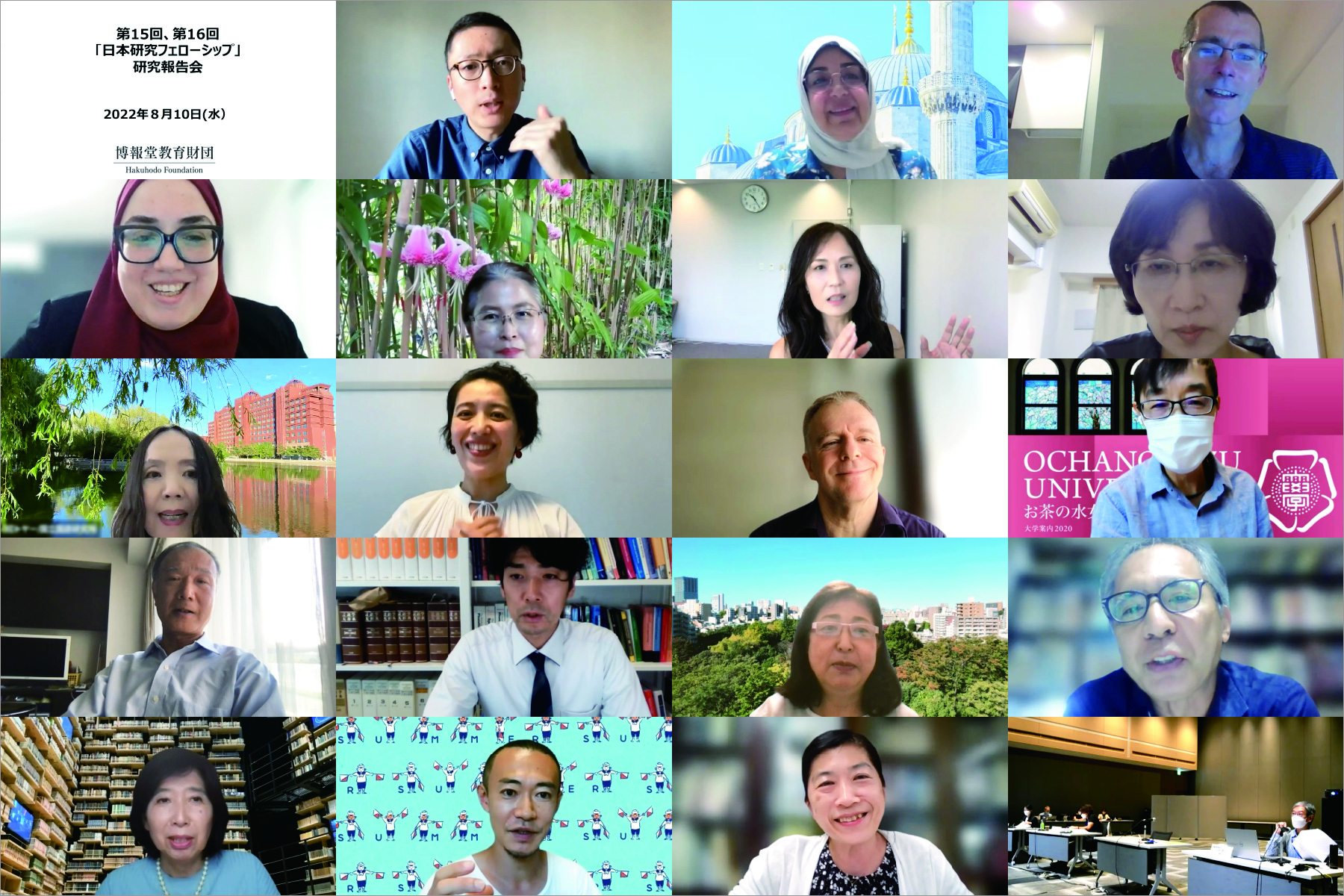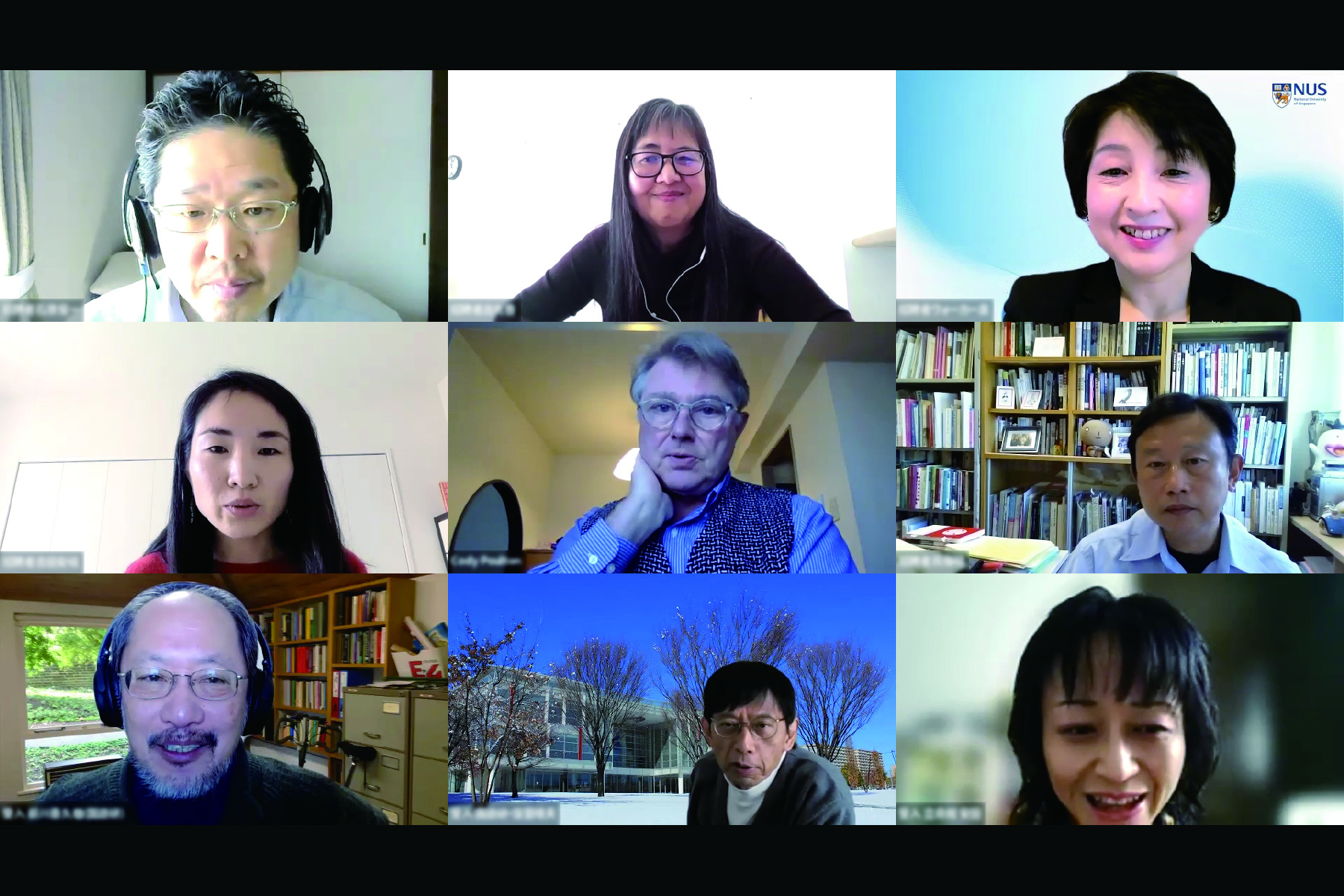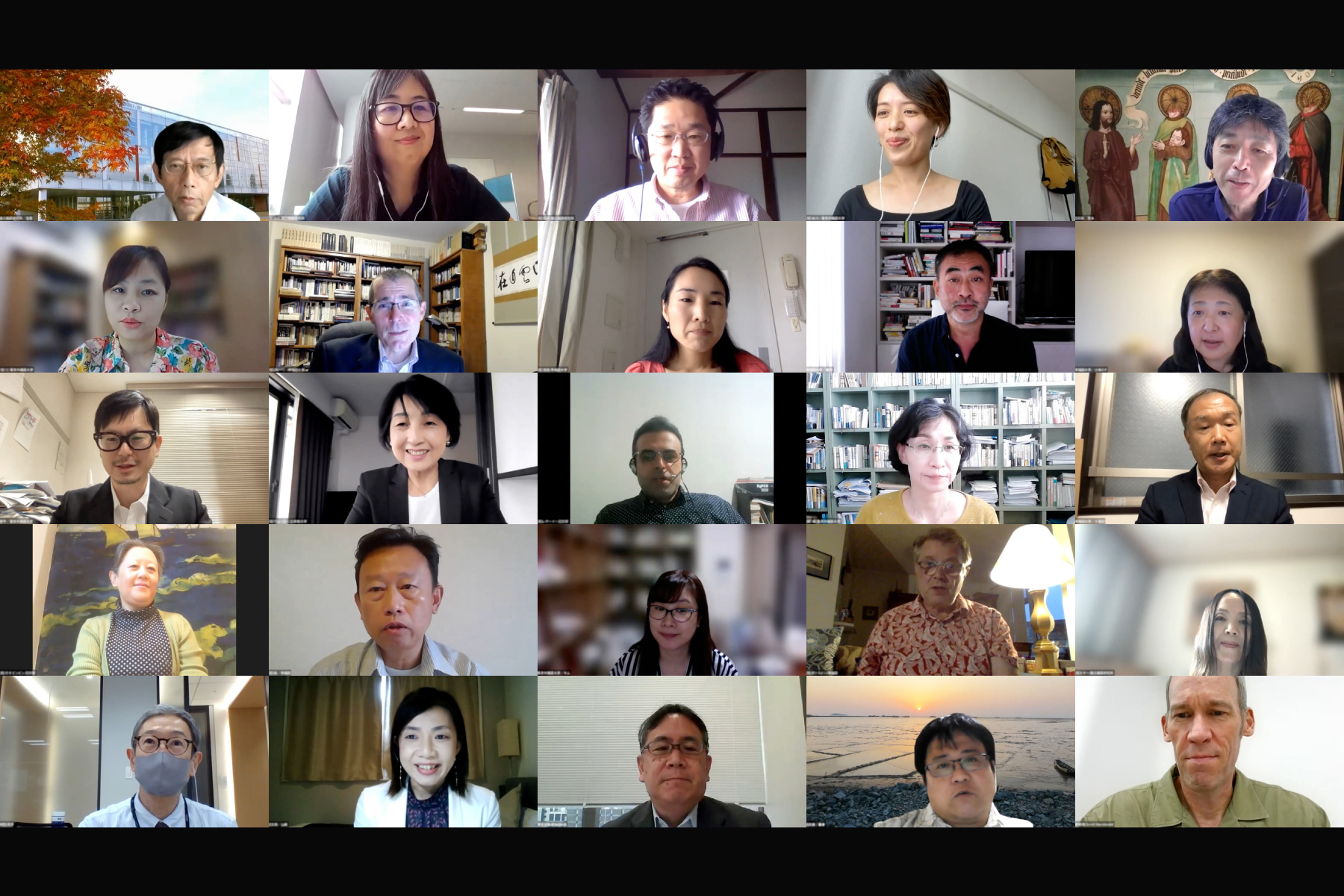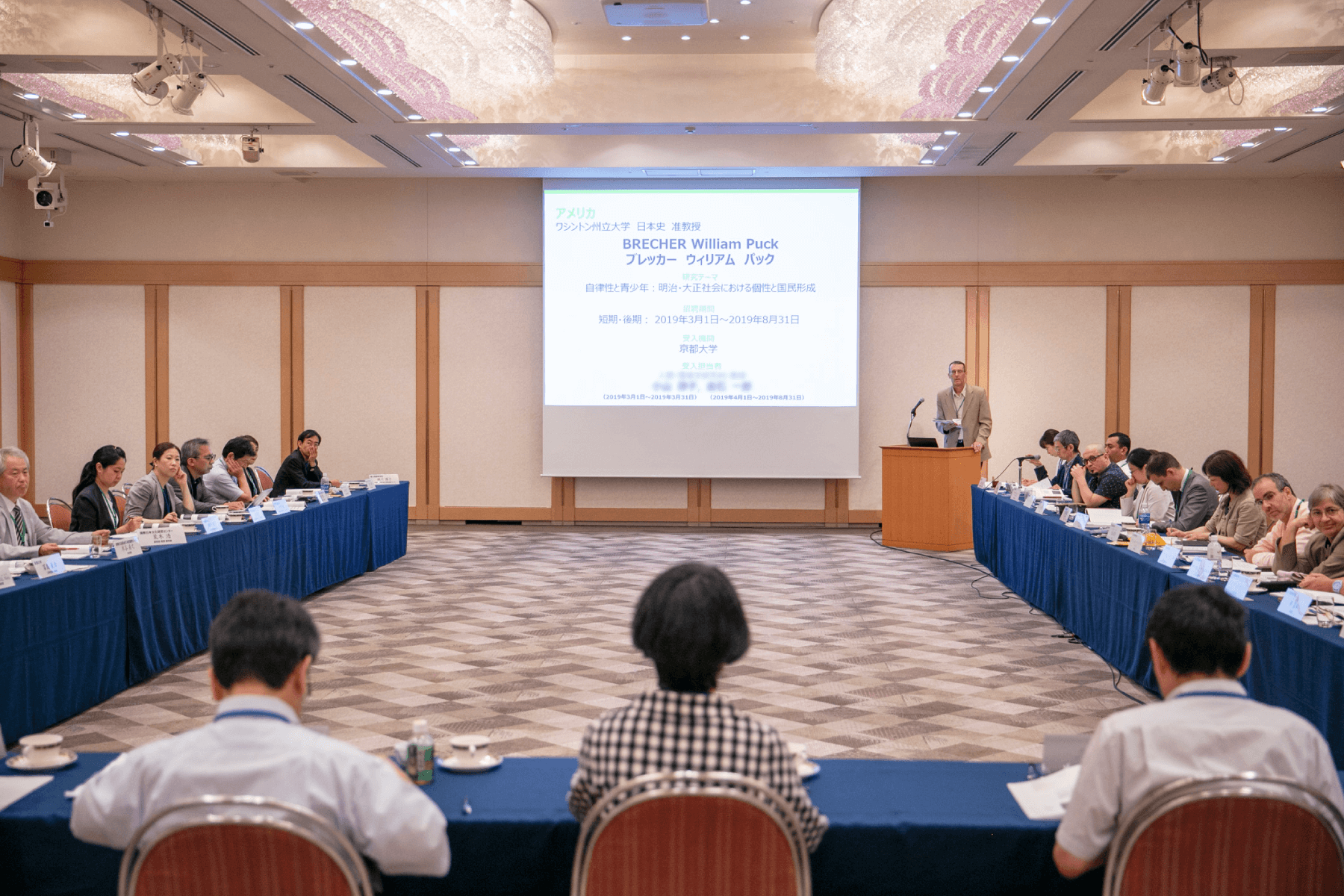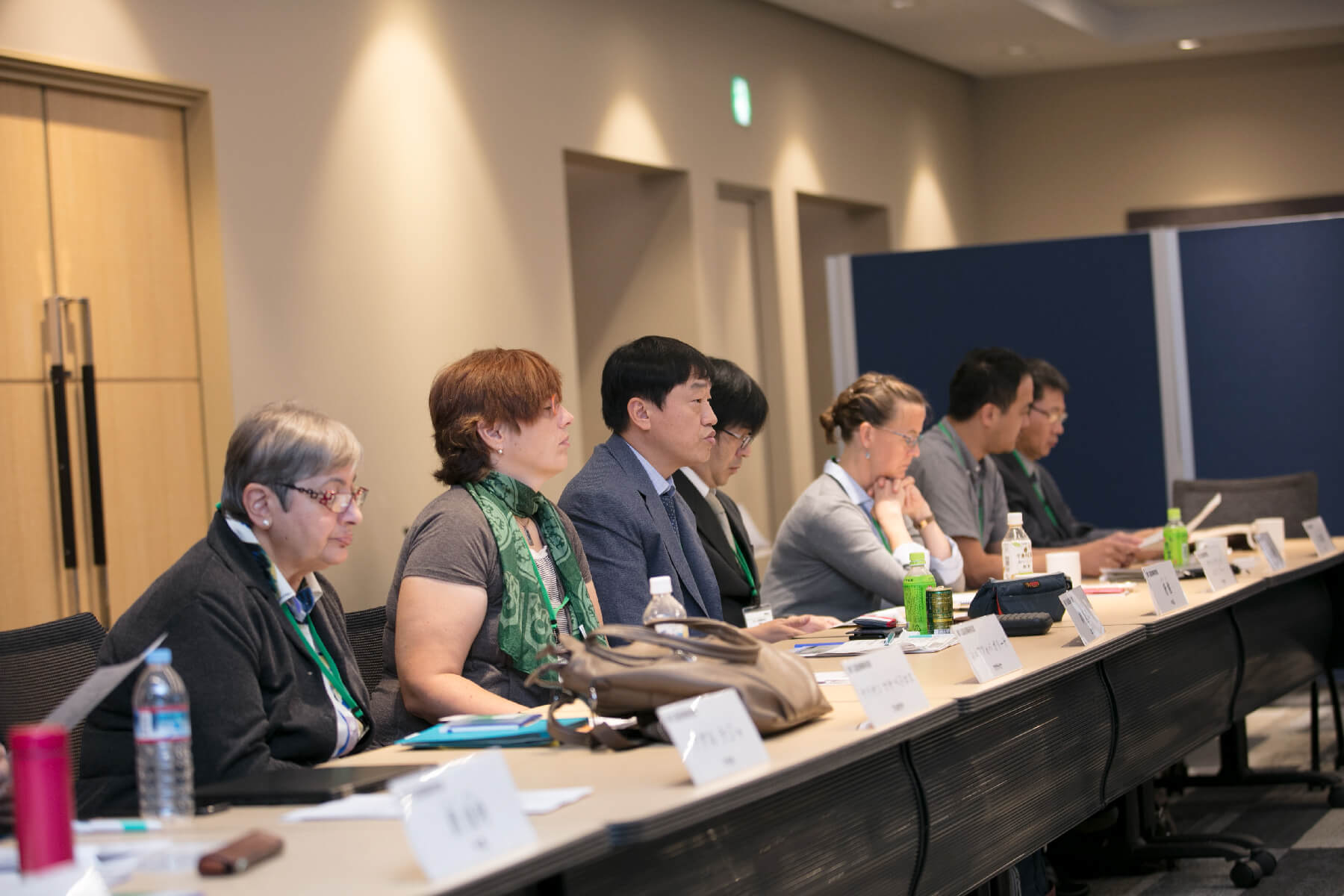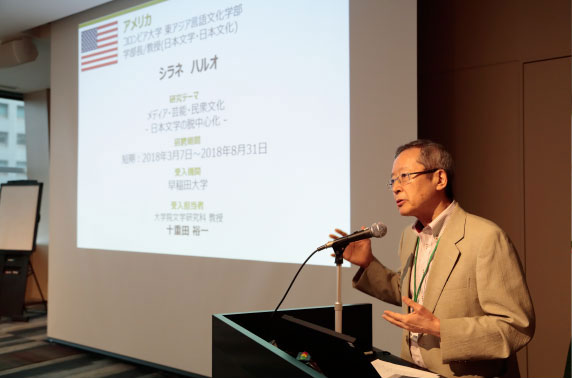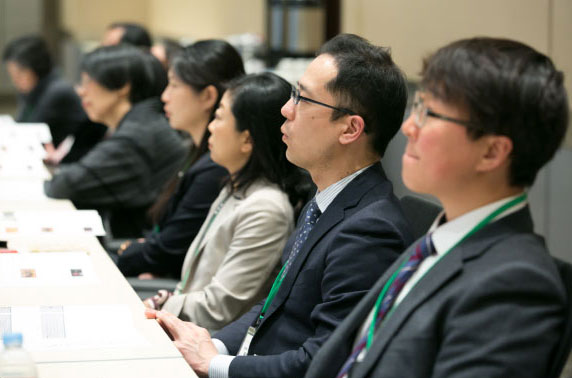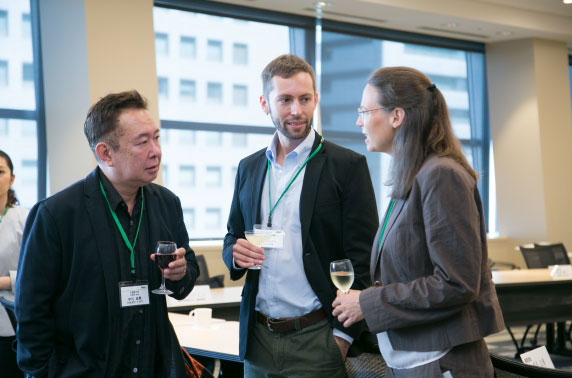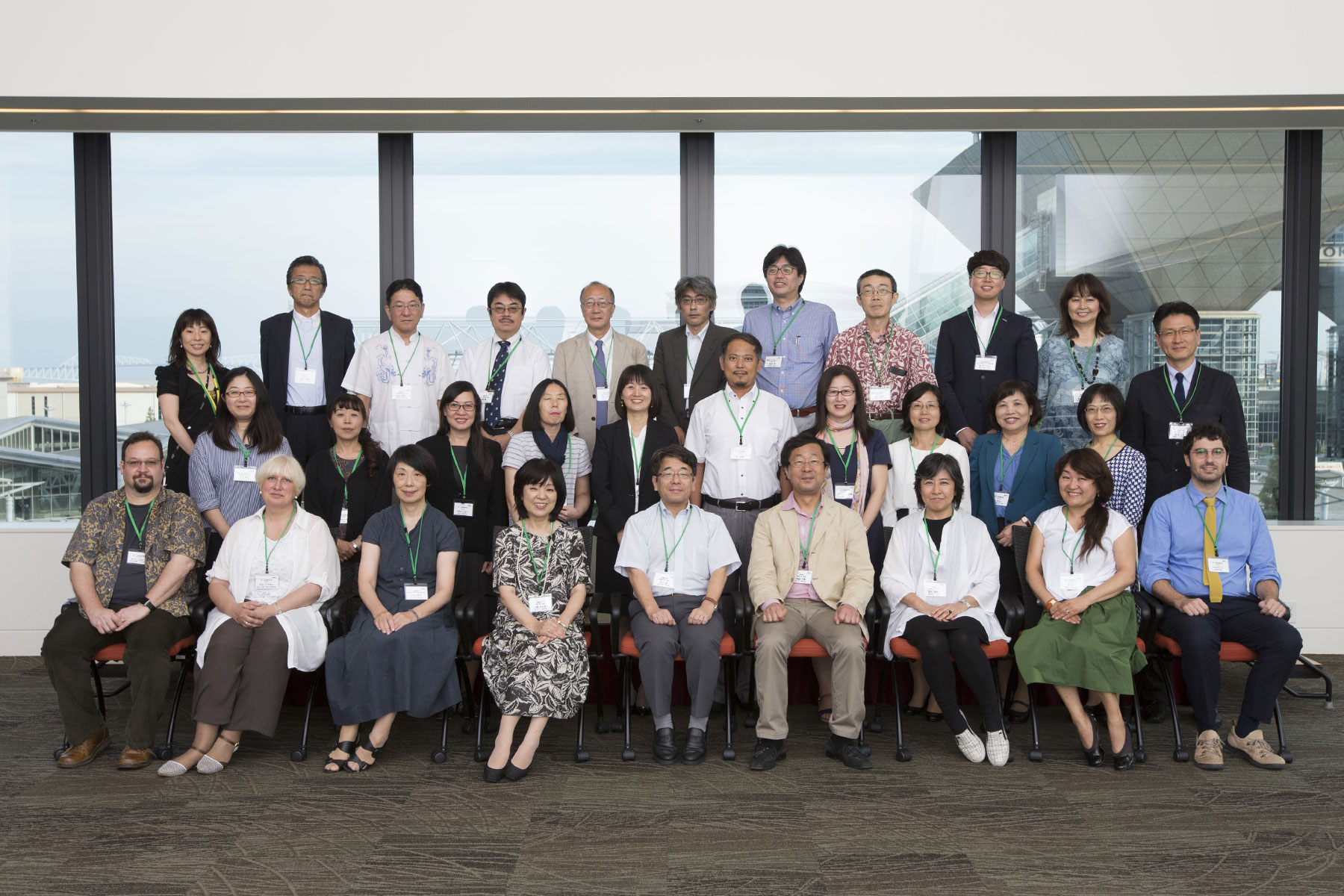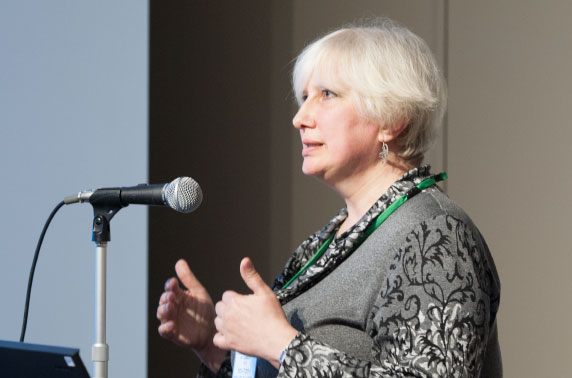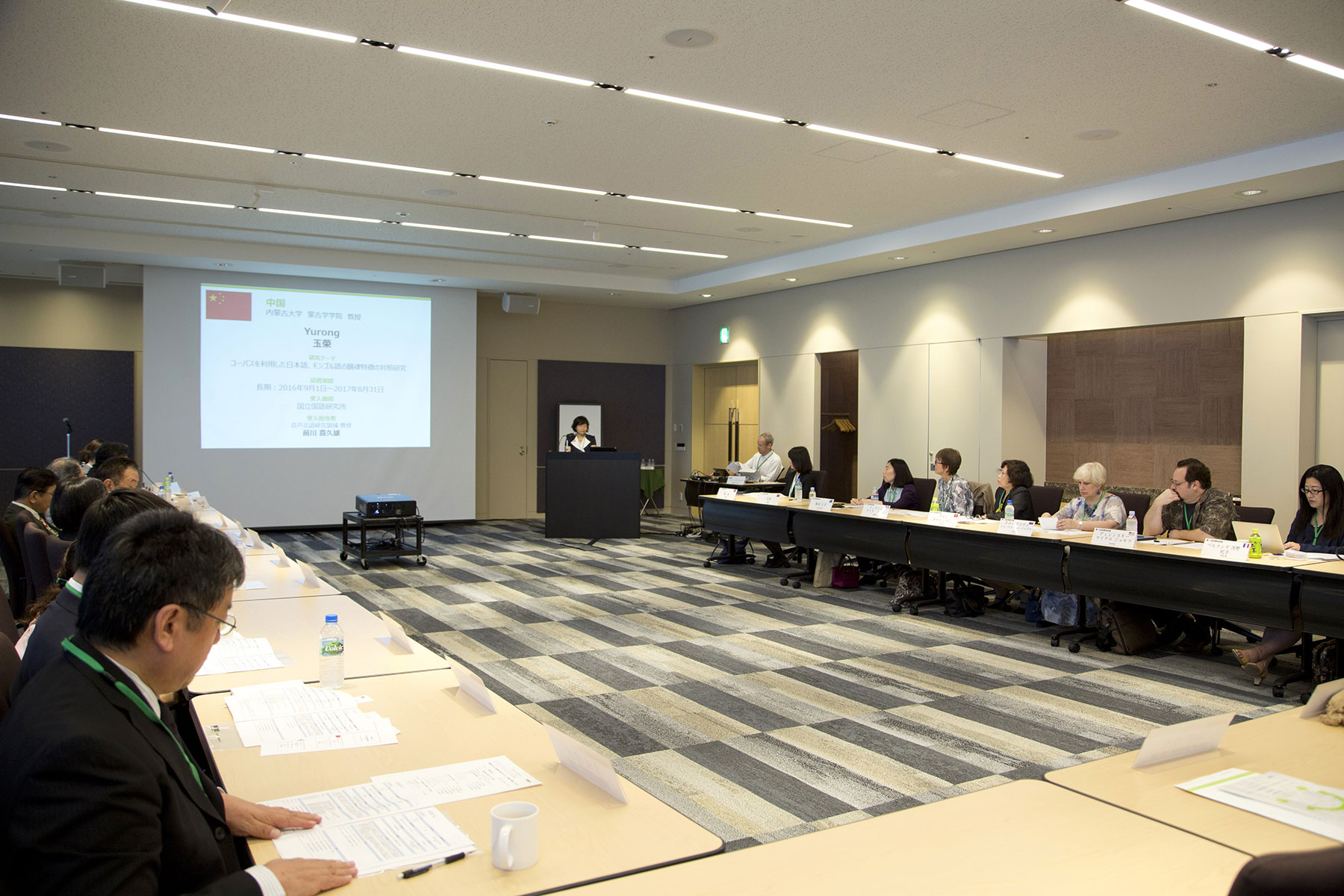14th Fellowship Invitees
Here we introduce the 14th Fellowship Invitees (eight long-term, two short-term first-round) along with their aspirations for their field research in Japan. (Listed in Japanese syllabary order with professional titles omitted.)
<Japanese Language and Japanese Language Education Research>

-
ANDREEV Anton Stoytchev
Associate Professor, Sofia University, “St. Kliment Ohridski” (Bulgaria)
“A Contrastive Study of Japanese and Bulgarian Phonology and Phonetics”
“The research I will do during this fellowship will compare Japanese and Bulgarian phonology and speech. I’m really looking forward to this, because before I could only dream of the opportunity to do research at the National Institute for Japanese Language and Linguistics, which has an illustrious history of phonology research, under the supervision of Professor Kubozono, who is a legend in this field. I am usually in the position of teaching students, so it is refreshing to feel like I have become a student again. My Japanese wife and our 14-year-old son will stay with me in Japan long-term, and they are looking forward to having their own stimulating experiences as well.”

-
WANG Chong
Professor, School of Foreign Languages, Dalian University of Technology (China)
“A Study on Reconstruction of the Semantic Categorization of Word Meanings in Second Language Acquisition: From the Perspective of Productive and Receptive Knowledge”
“I was doing research alone immediately after I came to Japan in September, but in October classes started at Ochanomizu University. I attend Master’s courses in the morning and seminars by Professor Moriyama in the afternoon, so my life has suddenly become more exciting. There are many students in the seminar, as well as researchers in fields closely related to mine, and I have started to think that I can start a study group with them so we can build on each other’s work. This is a wonderful opportunity for me, so I would like to expand my interactions to include other fellowship invitees who came here at the same time as me.”

-
SU Kehbow
Associate Professor, Chairperson, Japanese Department of Soochow University (Taiwan)
“On Teaching Taiwanese Learners Japanese Pronunciation: Locating the Tolerance of Japanese Ears”
“During this fellowship, I hope to borrow a resource available only in Japan: the ears of Japanese people. In other words, I want to research how the Japanese language as spoken by Taiwanese people sounds to Japanese people. Taiwanese people place importance on teaching spoken Japanese. However, if we are too strict, then students will worry so much about their pronunciation that they become unable to speak. I hope my research changes this trend in education. My current residence is right in front of Showa Memorial Park in Tachikawa City, Tokyo. I can see Mt. Fuji just out of my back window. It makes so happy to live in an environment like this.”

-
BUTLER GOTO Yuko
Full Professor, Graduate School of Education, University of Pennsylvania (USA)
“Language Abilities Necessary in an Era of Advancing Technology”
“I am interested in technology, and I will be guided by Professor Lee from Waseda University during my fellowship. Professor Lee has knowledge of so many things, including cutting-edge technology, and also has a great human network, so I am very happy to have this opportunity to study under him. I would also like to write a book about the use of technology in schools abroad and changes in children’s language skills, so that it leads to discussions in Japan.”

-
YEOH Lee Su
Full-time Lecturer, University Science Malaysia (Malaysia)
“Designing Business Japanese Teaching Material for Foreign Japanese Language Learners at Malaysian Universities”
“Japanese language education in Malaysia is blessed with a wonderful environment but has limited resources. Now that I have come to Japan, I am meeting all sorts of new people. Last week I met with the president of a Japanese language textbook publishing company. He took me to their company headquarters, as well as to the Japanese language school of the Asian Students Cultural Association, and I learned that there is a short-term training course for overseas students who want to work in Japan. I am very glad that in the future I will be able to work together for a long time with the people I have met in Japan.”
<Japanese Literature and Japanese Culture Research>

-
AVENELL Simon Andrew
Associate Professor and Associate Dean, School of Culture, History, and Language, ANU College of Asia and the Pacific, The Australian National University (Australia)
“Postwar Japanese Civil Society and Asia: Building Connections at the Grassroots”
“My area of expertise is the history of the postwar era in Japan. I am looking forward to searching for primary and secondary sources that are only available in Japan and taking my time to read them. There are precious documents to be found in museums kept by local governments such as the city of Yokohama, and I hope to track them down carefully. I’m very grateful for this environment, where I can get away from Australia and really devote myself to research. Now I live in Fujisawa City, Kanagawa Prefecture, so I run to Enoshima every morning. One really special part of this is that when I reach the coastline on a sunny day, I can see Mt. Fuji.”

-
IMONO Mika
Lecturer, University of Strasbourg (France)
“Experience of Will in ‘Kata’ Practice”
“I was teaching at a university in France until August, so this is a great opportunity to do research freely without any such teaching obligations. One month has passed since I came to Japan in September, but I have never met and interacted with so many people in my life, as I have already attended academic conferences as well as research meetings at the International Research Center for Japanese Studies. In my interview research relating to “Kata” practice that I will start in earnest in October, I hope to hear individual stories that I could never imagine from theoretical research in a fresh state of mind.”

-
WILLIAMS Nicholas Morrow
Assistant Professor, University of Hong Kong (Hong Kong)
“Chinese Rhetoric and the Route to Enlightenment in Kukai’s Sango Shiiki”
“My research topic is Kukai. When I was doing research outside Japan, I couldn’t directly get my hands on anything relating to Kukai, but a great part of my fellowship in Kyoto here in Japan is that I can go to temples founded by Kukai and places where the culture of the Heian period relating to Kukai still remain. I had been to Kyoto before, but this is my first time to stay long-term, so I would like to go to various places for my research, and I look forward to seeing the beautiful autumn leaves in Kyoto.”

-
KIM Bohyun
Research Professor, Global Institute for Japanese Studies, Korea University (Korea)
“A Study on the Relation between the World of Tanka Poets of the Korean Peninsula and that of Central Japan during the Colonial Period: Tanka Poets Who Came Over the Sea”
“When I came to Japan, I was amazed to find that modern Japanese people are casually familiar with traditional poetry including haiku. This is my first time doing a fellowship in Japan, so I want to work hard to study the Japanese language as well. I often go to the library of Ritsumeikan University, which is a very beautiful place with well-managed documents. It feels like I have valuable documents from the early 1900s all to myself. I will read these materials with the hope of reporting meaningful research findings to the world.”

-
SATO Masayuki
Professor, Department of Philosophy, National Taiwan University (Taiwan)
“The Birth of ‘Oriental Philosophy’ during Meiji Period of Japan”
“My research has three themes: (1) the internationalization of Japan; (2) halting the disappearance of the research field of Oriental philosophy (ancient Chinese philosophy); and (3) making it possible for Asian researchers to study the classics, just as Western researchers study Greek and Roman classics. To achieve these goals, I am engaged in constant exchanges with researchers from various countries. Just the other day I was discussing this fellowship with an Israeli friend, who told me it must be ‘heaven on Earth’ for a historian like me to spend a year in Kyoto, one of the great ancient capital cities of the world.”
Following self-introductions by the research fellows, there were also self-introductions by liaisons from the receiving organizations, and statements of expectation from the receiving organization professors, who are “looking forward to mutually stimulating experiences as fellows advance their own research.”
The three members of the Evaluation Committee in attendance also commented. Professor Masahiro Ijima said, “There will be an opportunity to discuss your findings half a year from now and again one year from now. Please be sure to present the specifics of what you did during your fellowship.” Professor Kaoru Koyanagi said, “One year (or half a year) seems like a long time, but it will be over before you know it. I hope you will have a fulfilling life in Japan, that produces fruitful research findings.” Professor Takahisa Furukawa said, “I was glad to meet researchers selected from a pool of many applicants. Please further your research here in Japan.”
After the comments from the Evaluation Committee, the attendees enjoyed a buffet-style social event in a corner of the same venue. The research fellows actively exchanged information with each other, while also interacting with other researchers, receiving organization professors, receiving organization liaisons, and members of the Evaluation Committee. Finally, Professor Su offered a few words on behalf of the 14th Fellowship Invitees, and the event ended in a friendly atmosphere.
*Starting with the 14th Fellowship, the name of the Round-Table Discussion and Social Gathering has been changed to “Exchange Event.”




